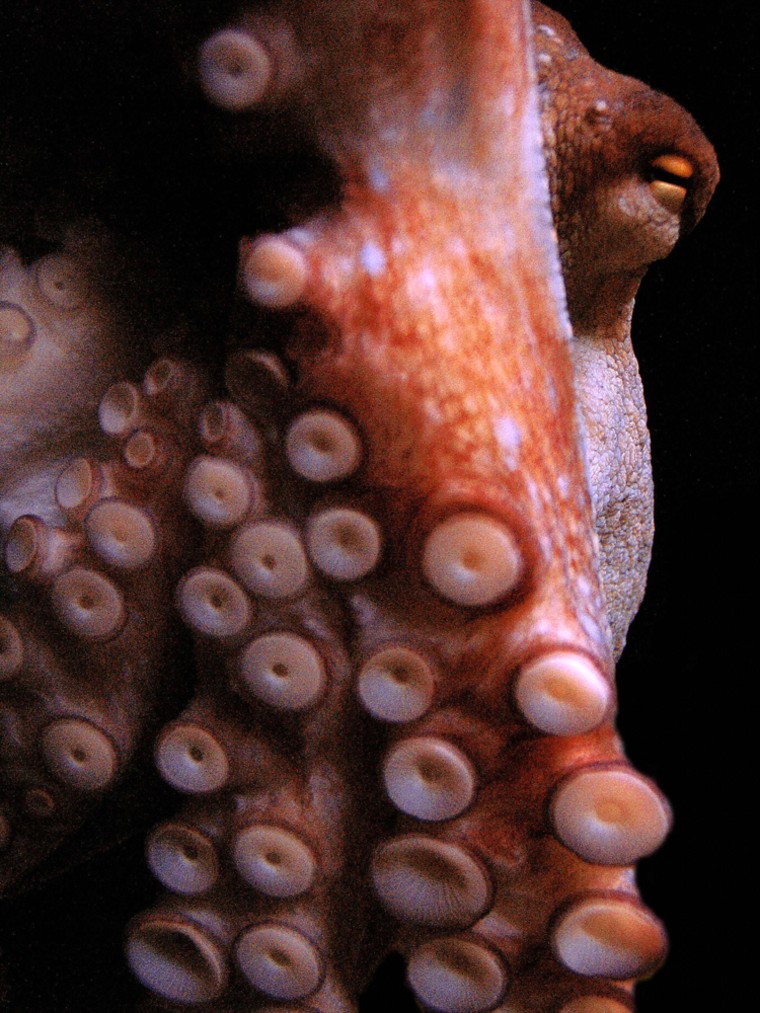They flirt, hold hands and guard their lovers jealously — yet they don't even have bones.
The love lives of octopuses are far more complex than anyone thought, a team at the University of California, Berkeley, reported on Monday.
Graduate student Christine Huffard snorkeled in the waters off Indonesia to watch Abdopus aculeatus, an octopus with a spiky tan body the size of a small orange and arms 8 to 10 inches long.
Octopuses are well studied in captivity but because they are shy and often nocturnal, their natural wild behavior is less understood.
"Each day in the water, we learned something new about octopus behavior, probably like what ornithologists must have gone through after the invention of binoculars," said Huffard, now at the Monterey Bay Aquarium Research Institute in Moss Bay, California.
"We quickly realized that Abdopus aculeatus broke all the rules, doing the near opposite of every hypothesis we'd formed based on aquarium studies."
Size matters
They saw male cephalopods guarding the dens of their mates for several days, warding off rivals and even strangling them if they got too close.
Small males would sneak in to mate by swimming low to the ground in feminine fashion and not displaying their "male" brown stripes, the researchers reported in the journal Marine Biology.
And size matters, although perhaps not in quite the same way as for humans.
"If you're going to spend time guarding a female, you want to go for the biggest female you can find because she's going to produce more eggs," biology professor Roy Caldwell said. "It's basically an investment strategy."
Caldwell said he believes the behavior is common to many of the nearly 300 species of octopus.
The animals usually mate several times a day once they reach sexual maturity. Males have a specially designed arm they use to deposit a sperm packet into the female, who retires to her den and lays tens of thousands of eggs.
Both parents die within a few months of mating, leaving the newborns to fend for themselves.
